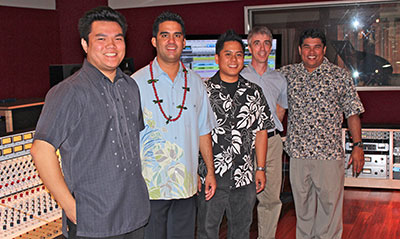
The University of Hawaiʻi Board of Regents approved the establishment of the MELE degree program at Honolulu Community College, previously a provisional program, at its monthly meeting held on July 19.
MELE is an acronym for Music and Entertainment Learning Experience that also spells the Hawaiian word for song. The program is the only one in the state that offers associate of science degrees in music business or audio engineering.
The goal of the program is to invest in local talent to grow Hawaiʻi’s music industry and broaden its reach to the world.
“This one-of-its-kind program provides an educational foundation and base of knowledge to nurture and grow careers in the music and entertainment industry both within and outside Hawaiʻi,” said Honolulu Community College Chancellor Erika Lacro.
The MELE program opened with an enrollment of 27 students in 2007. Today, more than 300 students have taken MELE classes, and the program’s first associate degrees were awarded in the spring of 2011.
MELE utilizes a comprehensive music business and production curriculum meeting the requirements for entry-level training of music industry and production professionals. The curriculum focuses on combining academic experience with real-world applications to prepare students to work in the rapidly evolving global music industry of the 21st century.
“We want people to know we exist to provide professional training that has never existed in Hawaiʻi before,” said Keala Chock, director of the MELE program. “Our students have the ability to learn in our state-of-the-art recording studio and learning environment located in the heart of the Kapālama community.”
According to the U.S. Bureau of Labor Statistics, job openings in the two career fields associated with MELE—marketing managers and sound engineering technicians—are expected to increase by 12 percent and 6 percent respectively through 2018.
— Adapted from a Honolulu Community College news release.

